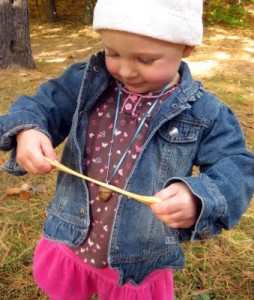Friday while driving from Michigan to Chicago, I saw a van painted like a can of Coke Zero, black with red writing. Since I love Coke Zero and was enjoying one at the time, I thought I’d pull alongside and hold up my can. The driver would see how enthusiastically I endorsed his product, and it might make his day.
But as I leveled off with him, I glanced at the driver who, it turned out, was far too busy to notice my raised can. With one hand holding a phone to his ear and the other texting on a different phone, I figured he was probably driving with his knee. I decided the wisest thing was to distance myself from him and his no-handed driving.
Multi-tasking is one thing, but being stretched too thin is something else. A perfect illustration is our age-old childhood friend, Silly Putty. We all played with this rubbery stuff as kids, shaping and reshaping it endlessly without it ever becoming dry or hard.
If we rolled it into a ball, it bounced around the room energetically, never running out of pep. But if we stretched it slowly side-to-side, it thinned with impressive elasticity that seemed to go on forever. Until, that is, it broke in two.
Each of us can take only so much stretching-thin before we fall apart. It’s true God gives us work we must do, just like he gave jobs to Adam and Eve. Scripture says we’ll also have tasks to accomplish in heaven. But the work of Eden was deeply satisfying, and the work of heaven promises to be rewarding. Meanwhile, present-day work between those two ends isn’t nearly as good. Because of that it can quickly stretch us thin and bring on a snap.
Of course we’ve all been told to choose work that leans into our natural giftings. Nate told our children, “Try to make a living doing something you love.” That’s wise counsel but doesn’t always work out. So what do we do if we can’t work at what we love? Is there another way to keep from cracking under frustrating workloads?
There is.
Proverbs says, “Commit your works to the Lord, and your thoughts shall be established.” (16:3) Scripture tells us that even those tasks that don’t use our natural skills can take on rich meaning if we’ll first dedicate them to him. I learned this years ago in reference to the endless, messy work of motherhood. If we’ll pull God into whatever job we have to do, we’ll do well at managing it, and more importantly, we’ll change the way we think about it. The NLT version says our plans will actually succeed. That’s a pretty good deal.
I’m not sure, however, if God will ever make it easy to talk on the phone, text a message, and drive with a knee, all at the same time.
“Commit your way to the Lord; trust in him, and he will act.” (Psalm 37:5)





